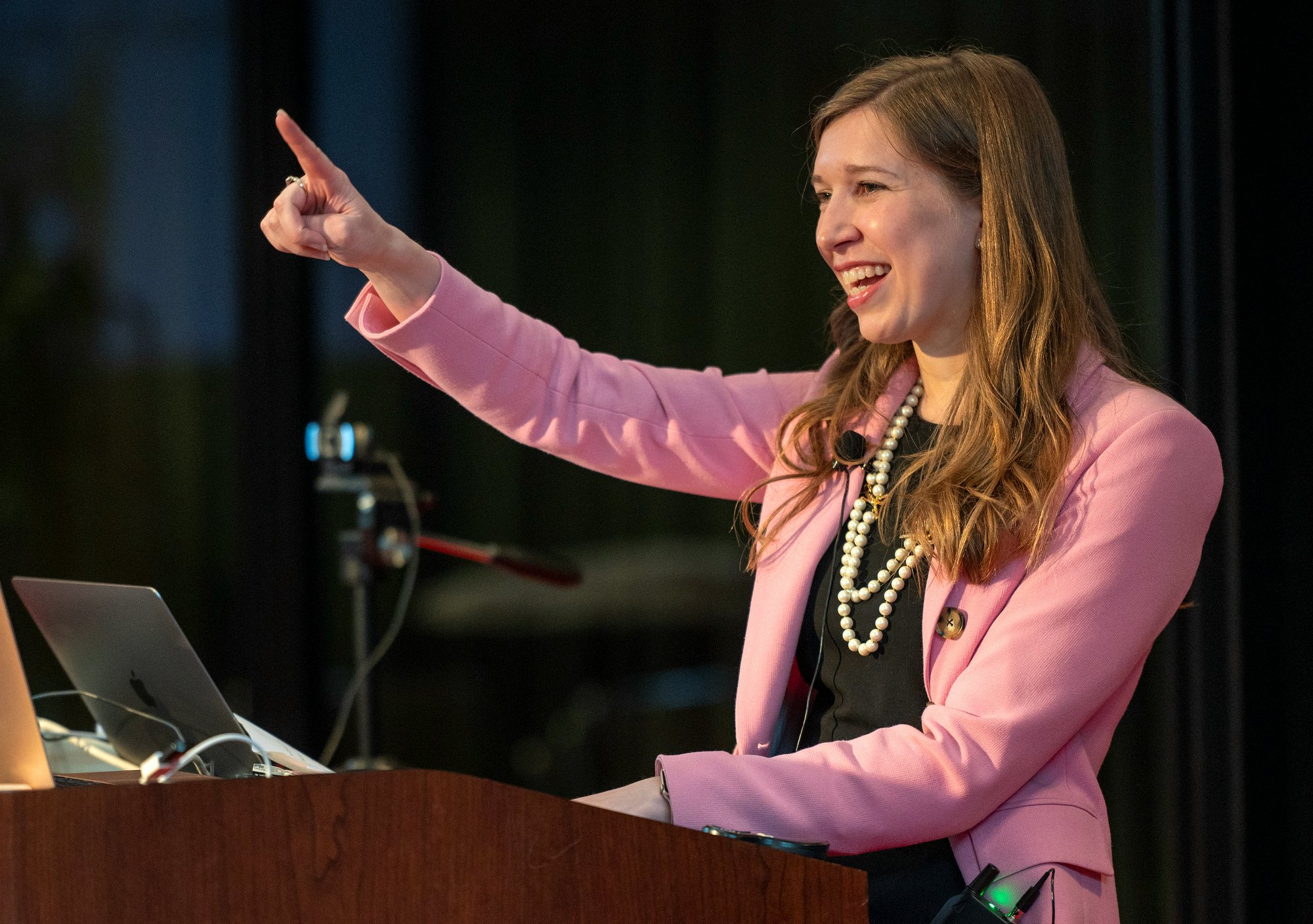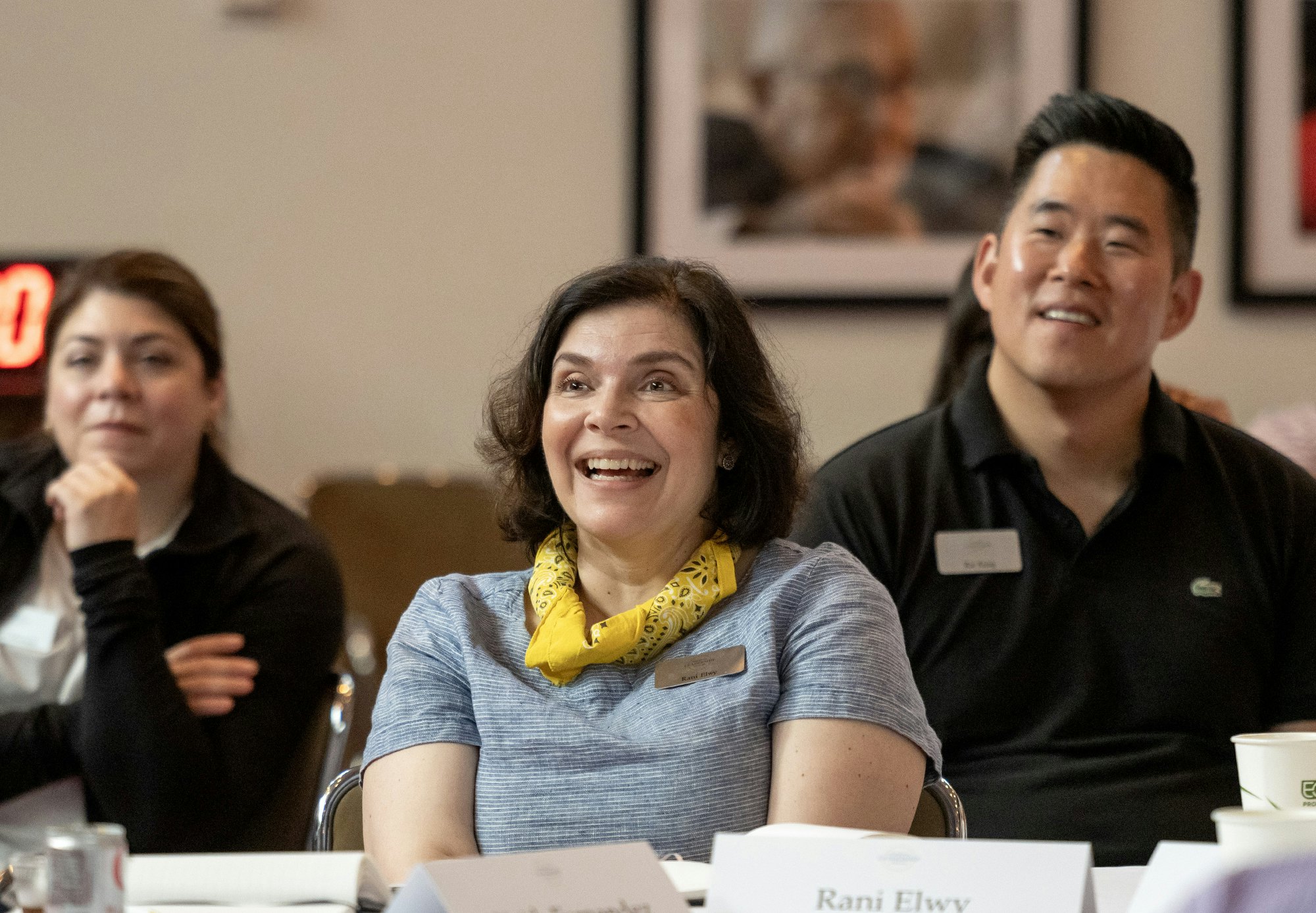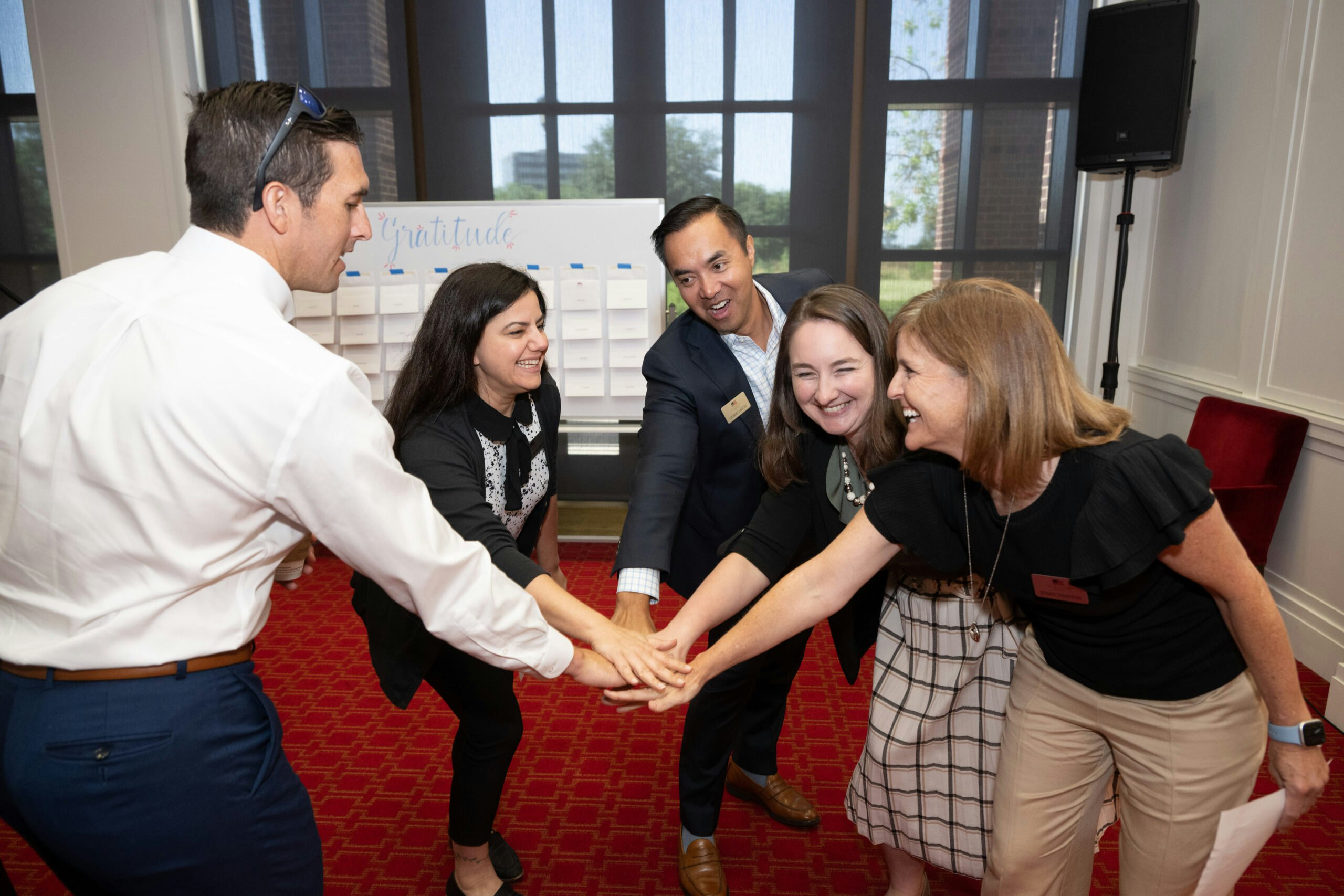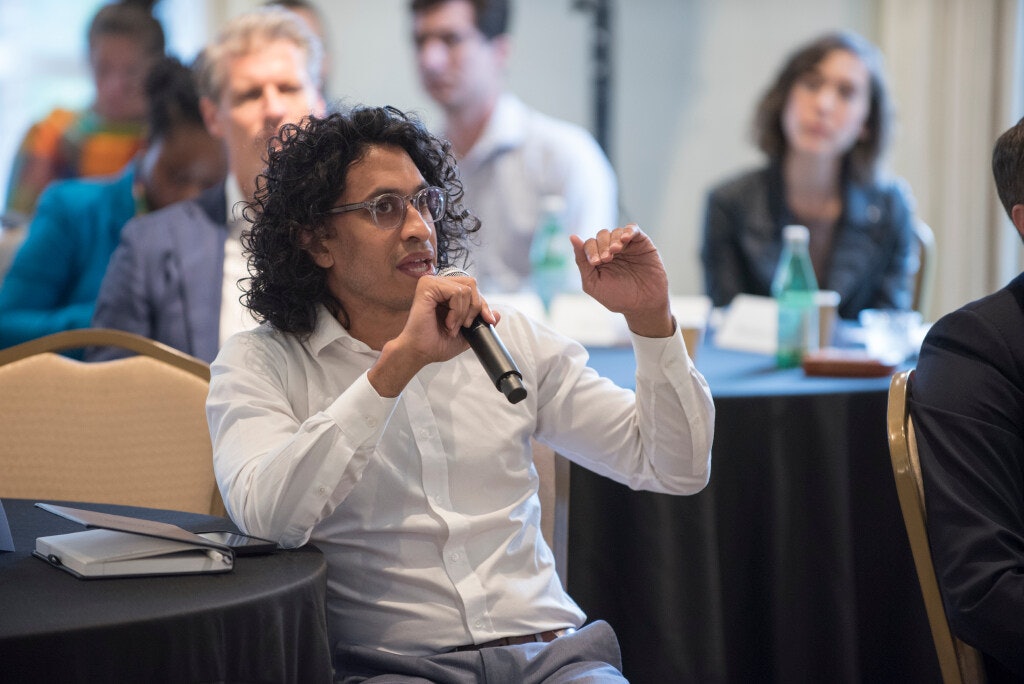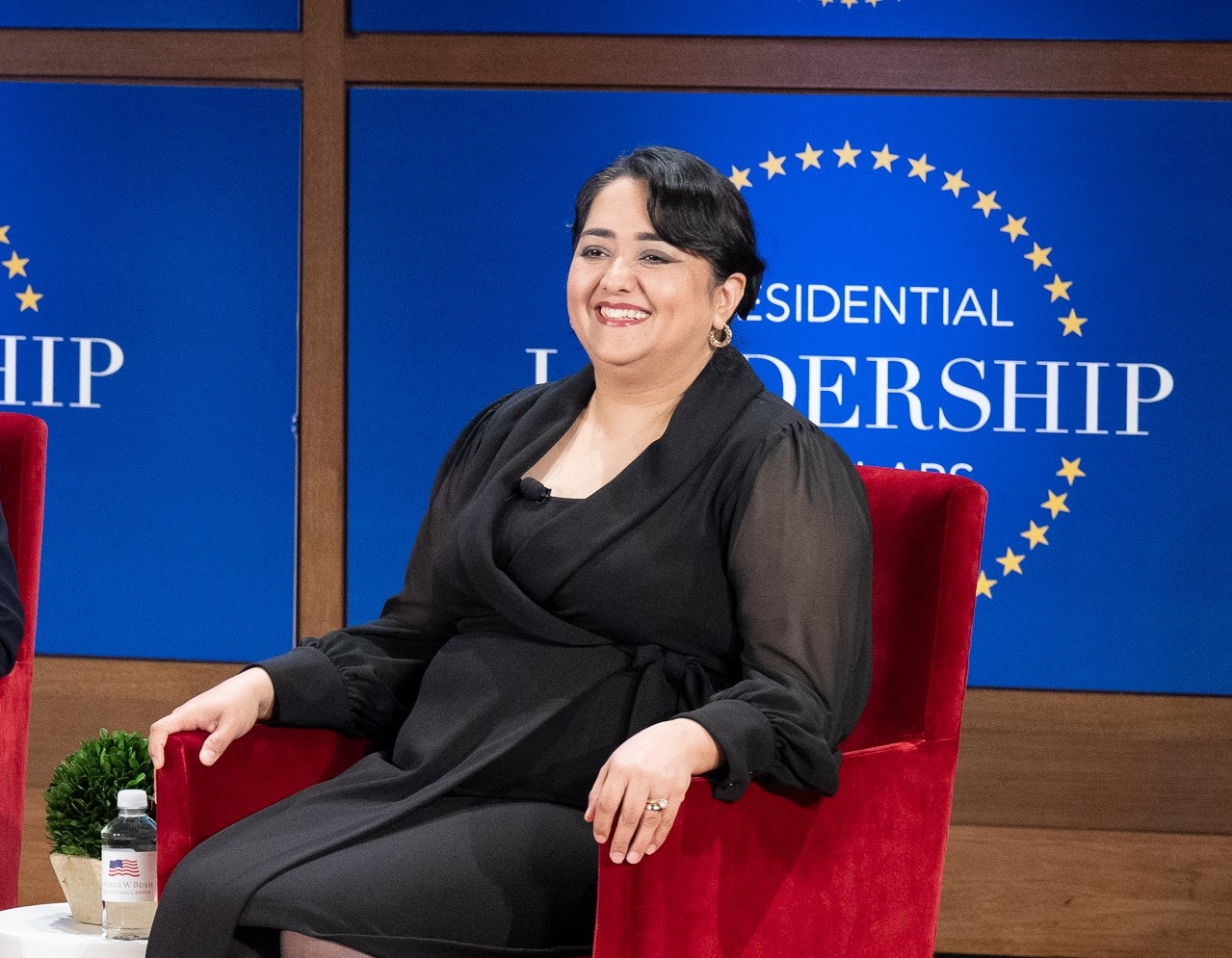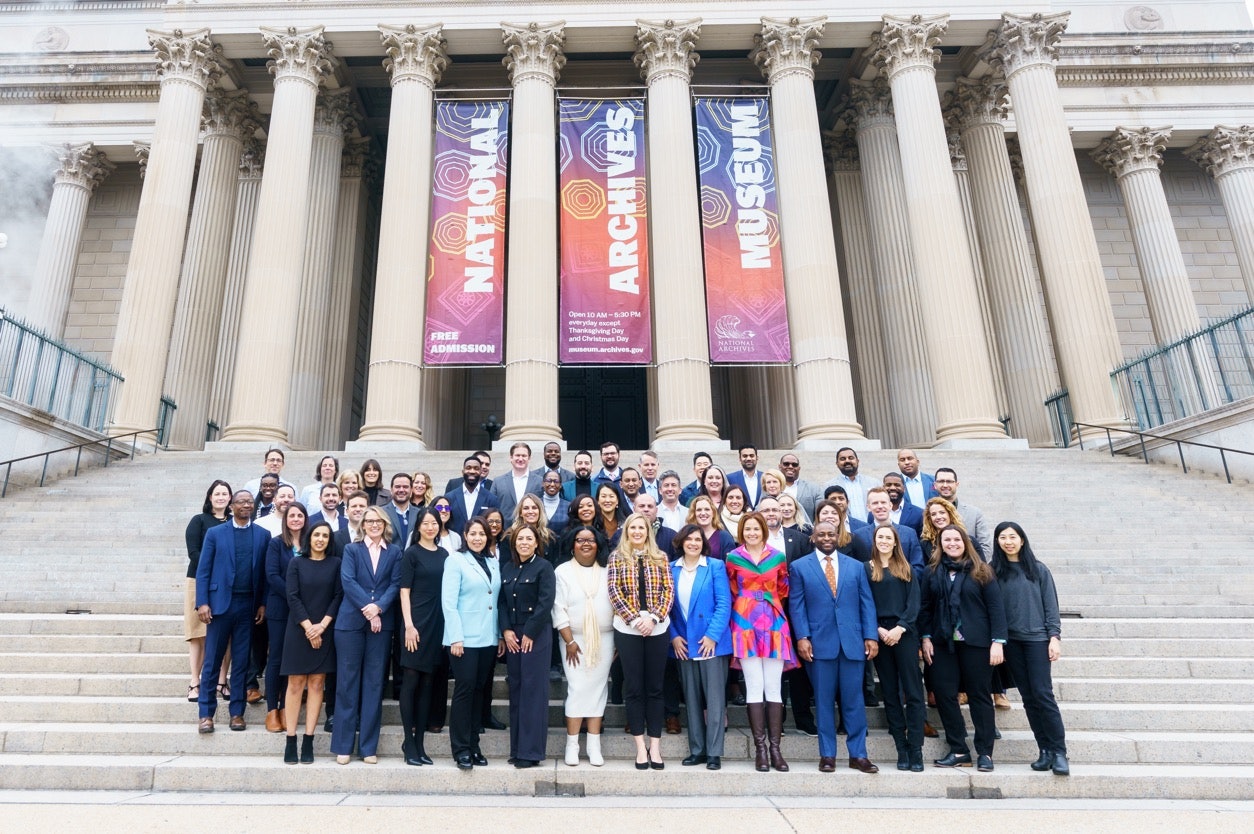In celebration of Hispanic Heritage Month, we spoke with PLS Class of 2018’s Julissa Carielo, Founder of the Maestro Entrepreneur Center and Dream On Group in San Antonio, TX, about her Mexican heritage, her personal leadership project at the Maestro Entrepreneurship Center, and how the two intersect.
In celebration of Hispanic Heritage Month, we spoke with Presidential Leadership Scholar Julissa Carielo (2018), Founder of the Maestro Entrepreneur Center and Dream On Group in San Antonio, TX, about her Mexican heritage, her personal leadership project at the Maestro Entrepreneurship Center, and how the two intersect.
You’re a San Antonio native, and you grew up in a predominantly Hispanic community. Can you tell us a little bit more about your background, your Hispanic heritage, and the influence it has had on your life and work?
Well, first of all, I don’t know that growing up, we ever heard the word Hispanic. We were Mexican…we were Mexicanos. My parents are from Mexico, and Latino was something we heard. Hispanic was something that I didn’t hear until later.
It’s interesting to me that we have Hispanic Heritage Month. If we’re Hispanic, we’re Hispanic all year, right? Not just in one month. Growing up in my family, in our neighborhood, we all knew each other, we all supported each other. We didn’t know that we were in areas of town that were high risk or considered high poverty or just the areas of town that were not going to be advantageous for us being there. We just were happy to be in a loving environment.
You founded the Maestro Entrepreneur Center, which provides resources and tools for entrepreneurs to continue the growth of their small businesses. Can you tell us more about your organization and how it’s making an impact, particularly in the Hispanic/Latinx community in San Antonio?
As you mentioned, I’m born and raised here in San Antonio. I am a small business owner who started from zero and had the American dream. We all start with the dream. We all started figuring out how to make that work. I was actually in the commercial construction industry, and so that is the industry that my business grew up in. And after so many years in the business, I was successful, and I just thought, “what can I do to give back to the community?” I purchased an elementary school and started this foundation — Maestro Entrepreneurship Center — to bring incubation space and training to help the small businesses in our local community accelerate. And this was because I knew firsthand the struggles I went through, but fortunately I went to get my degree in business.
It was easier for me to run a business than the normal mom and pops that are out there. I also knew that there was a need, not just in my community, but in the whole United States. If we know that 98% of the small businesses stay small, there’s an issue. There’s a reason for that and it’s… again, what’s happening in the day-to-day that’s preventing these companies from growing. And so, the Center was important because we wanted to make sure that we were going to provide training so these companies could have a chance to advance.
What unique perspective and edge, if any, do you think your Hispanic and Mexican heritage has given you as an asset in your entrepreneurial journey?
I think that most definitely growing up in a Hispanic community, Latino community, the community building part of what we did to come together and live our normal day-to-day life really helped me as an entrepreneur because I immediately started looking for who I could lean on or work with or just bring to my group to help me establish what I was going to be doing. That seemed very normal to me. I also think the fact that I grew up with four brothers, so growing up with men and then working in a male dominated environment, seemed like home. To me, it didn’t seem like I wasn’t supposed to be in construction.
I was going to follow my passion, and that’s just what I wanted to do. I also knew my father was a small business owner who came from Mexico following the American dream and wanting to do what was best for his family and provide opportunity. And so, I saw that firsthand; I was able to see him doing that. He was in automotive repair, and so we understood customer service. We understood taking care of the client and providing a service that they would be happy with. We knew that growing up.
Why is giving back to your community and specifically the Latinx and Hispanic community important to you?
I think because our government is not focused on it. It’s something that if we don’t do it as a community, it’s not going to happen as fast as we need it to. Here I do a lot of research on a lot of things, and our biggest thing is knowing what is happening in our community. If we look at 20 years ago, what were the poverty rates; what were the areas of town that were the highest in poverty? And you fast forward, 10 years, still the same, 10 years later, still the same, which means we’re going to expect 10 years down the road to be the same. And so, there are things that we need to do differently to change that. It’s not ok to say you’re in that box over there, and that’s just the way it is. It doesn’t have to be that way, and so it’s so important to get involved.
To me, the business owners in the community, they’re in the neighborhood, they’re the boots on the ground, they’re the eyes and ears, they see what’s happening. They also have an opportunity to be a neighborhood leader or community leader to help use their voice to bring better things to the community. They’re the ones hiring the people who live there. They provide the opportunity, and if we focus on those businesses, we will create change. And so, it’s important that we work and focus on those things, and we can’t wait for our government to decide whether it’s the right thing to do or not.
Can you tell us about your future plans and goals for the Maestro Entrepreneur Center?
Currently the Maestro Entrepreneurship Center is located in 78207, the poorest zip code of San Antonio, and it’s already creating so much impact in this area. We are almost 70% Latino, so it’s hitting the impact that we need, which is perfect. What the Maestro Center is now looking at is establishing connections with community hubs so that we’re able to serve out of other areas of town and also establish rural area servicing, so we’re hitting the businesses in the surrounding rural areas.











